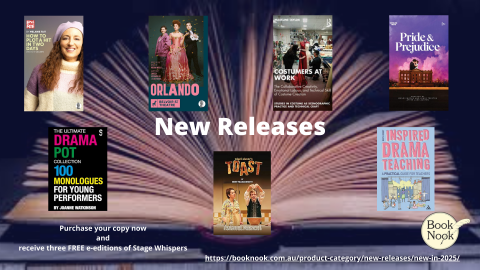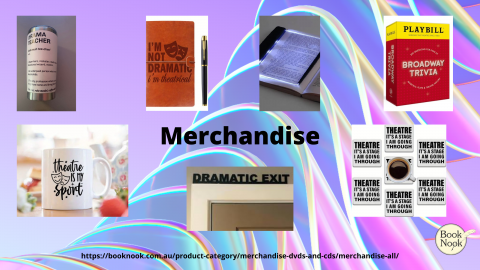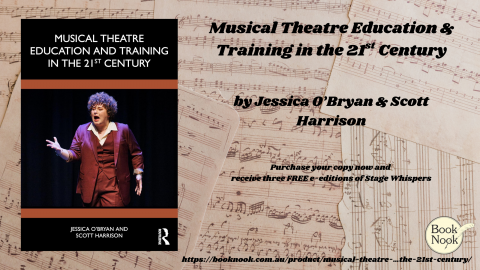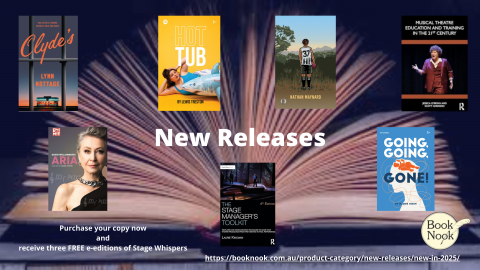The Hollow Crown - War of the Roses
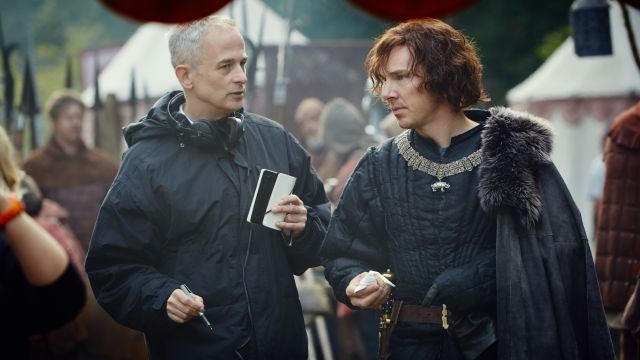
Shakespeare’s epic version of “The War of the Roses”, filmed for television, is now available on DVD. Adapting Henry VI parts 1 and 2, and Richard III, this second instalment of The Hollow Crown tells the story this exceptionally turbulent period in British history, featuring a who’s who of British acting including Benedict Cumberbatch, Hugh Bonneville, Judi Dench, Michael Gambon, Sally Hawkins, Sophie Okonedo and Tom Sturridge. Director and co-adaptor Dominic Cooke (former Artistic Director and Chief Executive of the Royal Court Theatre) recently spoke to Neil Litchfield.
Neil Litchfield: With TV’s current passion for series about epic series and succession, do The Hollow Crown series The War of the Roses and The Hundred Years War make these Shakespeare plays some sort of Game of Thrones of his day?
Dominic Cooke: Absolutely. The first Game of Thrones book was very inspired by Henry VI, but I think that’s absolutely right - the kind of storytelling. I don’t know Game of Thrones, I’ve not even seen an episode of it, so it’s quite funny that when we did The Hollow Crown a lot of people picked up the parallels.

I think those dynastic epic stories, which have survived many, many generations, but actually the Henry VI plays, which were very early on in Shakespeare’s writing career, and his first commercial success, were very influential. He really invented a form of storytelling, which I think has come through into the present age, especially in TV drama and soap opera. A lot of drama or soap opera is based on different families, and these plays, and these films, are based on the fortunes and interactions of two families, and the kind of politics around that. There are a lot of family stories within these plays, in the way that these big modern series have.
Neil Litchfield: In Game of Thrones there is also that sense of succession, and power.
Dominic Cooke: What these plays are really about is what makes a good leader. What kind of a personality, what kind of a person, makes a good leader, and what various kinds of persons make bad leaders.
Our films, and the Henry VI plays, begin with the funeral of Henry V, who was considered by Shakespeare as the ideal king because he combined an ability to listen and be pragmatic with a very strong sense of leadership, guidance and authority.
The story goes that his power was based on Richard II being usurped by his father, so when Henry V dies we’re left with a kind of festering wound of resentment and animosity, which gradually, with a very weak and uncertain king in Henry VI, leads to terrible civil war and a dreadful breakdown in society.
So the Henry VI plays really, really look at the various forms of misuse of power, and the kinds of personalities that it’s very dangerous to have as Regents, from Henry VI, who is almost overly empathetic, who can’t make any decisions, through to Edward IV, who is incredibly hedonistic and self-interested, to Richard III, who’s a kind of psychopath.
We’ve seen all of those kinds of people, certainly in the 20th century, in positions of power, and how dangerous they can be. With the scary kind of way the world is going at the moment, and how much uncertainty there is, there’s a resonance in the question that these plays and our films bring up for the contemporary world.

Neil Litchfield: You have co-writing credit on The Hollow Crown. Given that Shakespeare was writing for a very basic stage, with no technology to speak of, what were the joys and challenges of adapting his writing to TV?
Dominic Cooke: Those issues of what’s theatrical and what isn’t weren’t an issue, because he’s writing epic, and there’s lots of different ways of doing that, because you can do it on the bare stage, and you know Shakespeare works brilliantly on a bare stage, and everything’s left up to the audience’s imagination, but we know also from the history of Shakespeare on film, that there have been some wonderful, brilliant films right through the ages of Shakespeare plays, and we know that they also do lend themselves to filmic or television storytelling. So that wasn’t really the issue, in fact it was a gift to be able to go to real locations and stage real battles.
The real problem was that we had four three and a half hour plays that we were trying to condense down into three two hour films. The danger of cutting that much material is that you can get a watered down version of the whole thing; you can weaken it.
Ben Power (co-adaptor) and I had to find some very clear principles of how we were going to organize the material for film, and what we were going to leave out – what were the guiding principles.

We basically decided that we would focus on England, in a way, as the central character; the moral deterioration of England, and how many bad decisions it takes to put someone like Richard III in power. I suppose it’s important to remember that this is not the real Richard III, because we know so much more about him now than Shakespeare did, but the Richard III he wrote is a Machiavellian abuser of power and a psychopath. So, how many bad decisions does it take to put the kind of person in power who murders children. Unfortunately there are many of those kind of people in power now, as we speak.
Once we came up with that organizing principle we were then able to focus the stories around that, and of course we have left out a lot, some wonderful stuff in its own right, but we needed to find a very clear through line, especially for television, because unlike film, you tend to stay unless you really hate it, whereas television really needs to hold the audience. So, without trying to be simplistic, or reducing the complexity of the plays, we really wanted to make films that were going to be accessible to an audience who didn’t know Shakespeare, in the belief that the plays were good enough to do that.
Working on shaping him to that took a very long time, as you can imagine.

Neil Litchfield: Was the script influenced very much by what we know about the real Richard as we know him now, as against Shakespeare’s Richard III?
Dominic Cooke: Very, very little. I think you’d come really unstuck if you tried to do the real history, as it bears so little relationship to what Shakespeare wrote. He was a dramatist, and in those days they didn’t have the same ideas as we do about authenticity. You have to be prepared to read what Shakespeare does as a kind of myth, based on something real, rather than expecting it to be, as we do, I think rather unfairly, in our time, to be as close as possible to real life. They weren’t hung up on those kind of things in the way we are.
Furthermore, he took these stories to talk about the nature of political power, to confront things that he was interested in, but he got his information from chronicles – there wasn’t the access to information that we have. He had one source of these stories; those sources were very, very sketchy, and there wasn’t a huge amount of historical research. He was starting with a pretty basic, and not very accurate, version of history, and turning that into history.
So we freed ourselves from the responsibility of having to be too historically accurate. Where we did do research within the filming of it, it was trying to get a feel of the period, without being too literal; a feel of the medieval world - from shooting in woods, making sure that they were ancient looking, and didn’t have fir trees, or things that would have been brought in later. We tried to get a sense of accuracy in that, but we were always aware that these are myths, made up stories, focusing on themes that have great relevance and importance to our world, but they’re not historically accurate dramas.
I absolutely loved doing these films, and I’m really proud of them. I’d never worked on screen before, but I learnt a hell of a lot. I think that we made them for people who haven’t seen Shakespeare before, and I hope that people who are curious about anything new, or watching any form of drama, will be able to really enjoy and understand them.
I think that people get disenchanted by bad experiences of Shakespeare they’ve had, mainly at school, and they feel that Shakespeare isn’t for them because it seems so difficult to understand, and sometimes it’s not very well performed, and that puts people off as well. I hope that we’ve done something that people can really enjoy, and appreciate because it’s a pleasurable and enjoyable thing, as well as an instructive one. We tried to keep that without dumbing them down. That was the type of tightrope we were treading when we were making them.
The Hollow Crown: The Wars of the Roses is released on DVD in Australia by Via Vision Entertainment
You can also choose a copy of The Hollow Crown as your free gift when you subscribe to Stage Whispers print magazine for one year or more - click here for more details.

